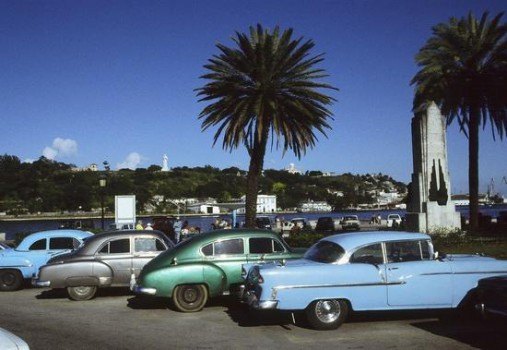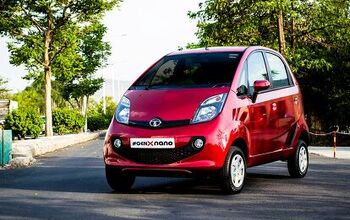Editorial: Cuba And The Axis Of Emerging Markets
A year ago, TTAC broke news of back channel overtures being made towards Iran on behalf of General Motors. A number of Chevrolet Camaro Convertibles made their way to Iran via a complicated logistics network and the importations were of dubious legality. But the event highlighted a sentiment in the auto industry that few are willing to openly discuss: the BRIC countries, once the darlings of the emerging markets, have already been exhausted. The search for new markets is on, and that means places like Africa and Iran. And Cuba could be next.
While the French auto makers have established foot holds in Africa, Iran and Cuba represent two untapped markets for auto makers – the only challenge is navigating the complex political considerations that make international trade difficult.
Iran’s auto market is expected to g row to 1.5 million units by the end of the decade – nearly 50 percent greater than Australia’s, and slightly higher than Canada’s. The current sanctions in place against Iran will make it difficult for auto makers to set up shop in the country, but when they come to an end, there will be a groundswell of demand from a country that has a highly educated and relatively affluent population. Iran already has a booming domestic auto industry with long established ties to the French OEMs, but that shouldn’t stop foreign brands from attempting to compete.
Cuba, on the other hand, was on precisely nobody’s radar until the surprise announcement that America and Cuba would attempt to normalize trade relations with one another. But that development, coupled with r apidly changing laws on car ownership, could open up a whole new market in the United States’ backyard. And talk about pent up demand – some 60,000 cars dating back to 1959 or before are still on the roads, held together by MacGyver-esque engineering. To be fair, a trickle of new cars has come into the country, but they are largely restricted to taxi owners and, government agencies and rental car fleets.
The irony of Cuba and Iran’s status as potential emerging markets is lost on nobody, but any enthusiasm should be tempered. The process of economic liberalization will likely take years to fully unfold. But that doesn’t mean that auto makers should defer their preparations.
More by Derek Kreindler
Latest Car Reviews
Read moreLatest Product Reviews
Read moreRecent Comments
- SCE to AUX All that lift makes for an easy rollover of your $70k truck.
- SCE to AUX My son cross-shopped the RAV4 and Model Y, then bought the Y. To their surprise, they hated the RAV4.
- SCE to AUX I'm already driving the cheap EV (19 Ioniq EV).$30k MSRP in late 2018, $23k after subsidy at lease (no tax hassle)$549/year insurance$40 in electricity to drive 1000 miles/month66k miles, no range lossAffordable 16" tiresVirtually no maintenance expensesHyundai (for example) has dramatically cut prices on their EVs, so you can get a 361-mile Ioniq 6 in the high 30s right now.But ask me if I'd go to the Subaru brand if one was affordable, and the answer is no.
- David Murilee Martin, These Toyota Vans were absolute garbage. As the labor even basic service cost 400% as much as servicing a VW Vanagon or American minivan. A skilled Toyota tech would take about 2.5 hours just to change the air cleaner. Also they also broke often, as they overheated and warped the engine and boiled the automatic transmission...
- Marcr My wife and I mostly work from home (or use public transit), the kid is grown, and we no longer do road trips of more than 150 miles or so. Our one car mostly gets used for local errands and the occasional airport pickup. The first non-Tesla, non-Mini, non-Fiat, non-Kia/Hyundai, non-GM (I do have my biases) small fun-to-drive hatchback EV with 200+ mile range, instrument display behind the wheel where it belongs and actual knobs for oft-used functions for under $35K will get our money. What we really want is a proper 21st century equivalent of the original Honda Civic. The Volvo EX30 is close and may end up being the compromise choice.


































Comments
Join the conversation
Thanks for the link to the article in Hemmings. Very resourceful people, it shows you what people can do with limited resources. I have never seen a 57 Pontiac crew cab truck. The Cubans will do fine after the Castros.
Havana before the idiocracy: https://www.youtube.com/watch?v=DwqxFnE1YHw Cool cars.